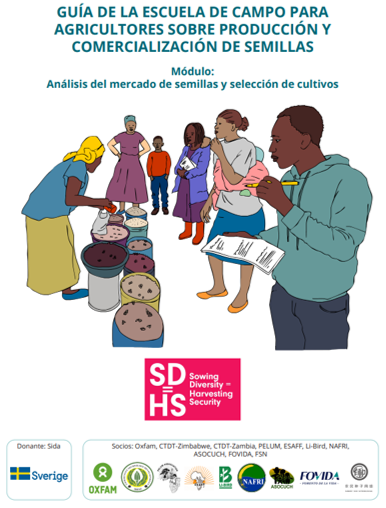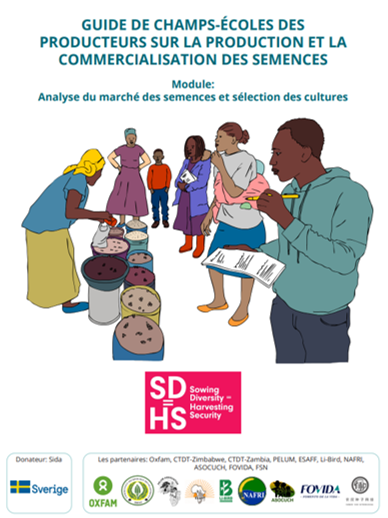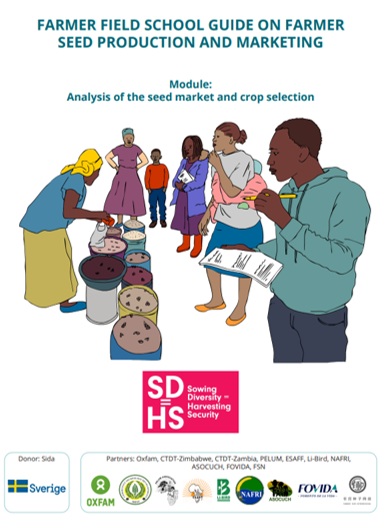This publication explores the concerns driving relevant international instruments with the goal of increasing the understanding needed to achieve coherence and mutual support.
Susan H. Bragdon notes the central role inequity plays both amongst the treaties and instruments discussed in this paper as well as in the broader international legal landscape that includes human rights and trade agreements. To achieve the Sustainable Development Goals requires understanding of the broader context within which biological diversity related agreements are situated and the real or potential impacts resulting from the different legal regimes. The paper therefore concludes with suggestions on how to create a system that supports the critical role that agricultural biodiversity plays in achieving the Sustainable Development Goals.
Conclusion:
Small scale farmers (SSF) and agricultural biodiversity are a foundation for healthy, sustainable food systems. Abandoning either to the spread of uniform, large-scale agriculture comes with irreversible cost to human and planetary health. The solution begins with exposing the inadequacy of the market-solutions and the dangers that agri-food-industry influenced policies pose to these communities and resources. This exposure creates opportunity to address the root causes of the hunger nutrition-health crisis through systemic, structural change, including the reinvigoration of accountable, democratic governance from the local to global levels.
Negotiations to get the language “right” in multiple venues will have limited effect without systemic and structural change. It is in this context that international declarations, rules, and processes can begin to provide support for SSF and agricultural biodiversity and enable the wider diffusion of the agroecological approaches of which SSF and
agricultural biodiversity are an integral part. Systemic change requires local action combined with influence at the global level of policies and institutions.
Entrenched economic, social, and political forces have converged to support a uniform, industrial system of agriculture that undermines diversity and SSF, and the drives global dissemination of a food system that makes people sick. It is not enough to pull into a farmers’ market in an electric car and buy organic cheese directly from a local farmer. It is not enough to be content with improving agricultural production systems within one’s own communities, hoping such improvement is part of an evolution to healthier food systems. The economic, social, and political challenges must be overcome in the international arenas where they arise. If not, the best we can hope for are geographic and time-limited ‘islands of success.’
Local action and consumer choice cannot transform a food system without changing macro-level policies and systems. Dislodging entrenched interests requires broad-based alliances that extend beyond food systems, creating common cause with others affected by corporate concentration, privatization, de-regulation, and market based solutions. As noted in Section 2, market-based solutions have been imposed to the detriment of the public interest in the fields of health, education, public safety, criminal justice, environmental protection, and other social goods. Those working for change in each of these arenas are potential allies in systems transformation. For example, there is renewed concern about corporate concentration with technology platforms and companies. Those concerned are potential allies in negotiating global anti-trust rules in a venue that addresses asymmetries of power. Effecting change requires both opposing that which prevents change and building to extend the reach of that which works.
“Food has the potential to be a powerful unifier to join forces across issues with the shared goal of countering the forces that prevent change.”
Extending the reach of the positive experience in this article and elsewhere necessitates increased awareness across geographies and cultures of the systemic challenges, and forging partnerships to influence policy from farm to fork.
It is a moment in time like never before. While experienced unevenly, hunger, malnutrition, and obesity are touching all parts of the world. With the right people, in the right places, with the right tools and the right messages, it is possible to see the crucial connection between SSF and agricultural biodiversity and healthy, nutritious diets supported and implemented at a global scale.









